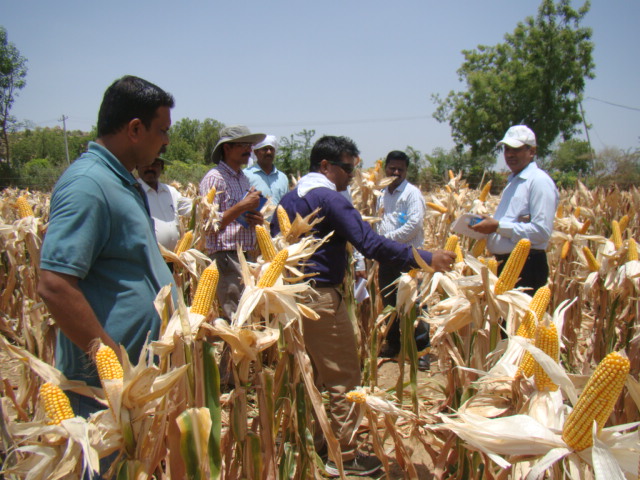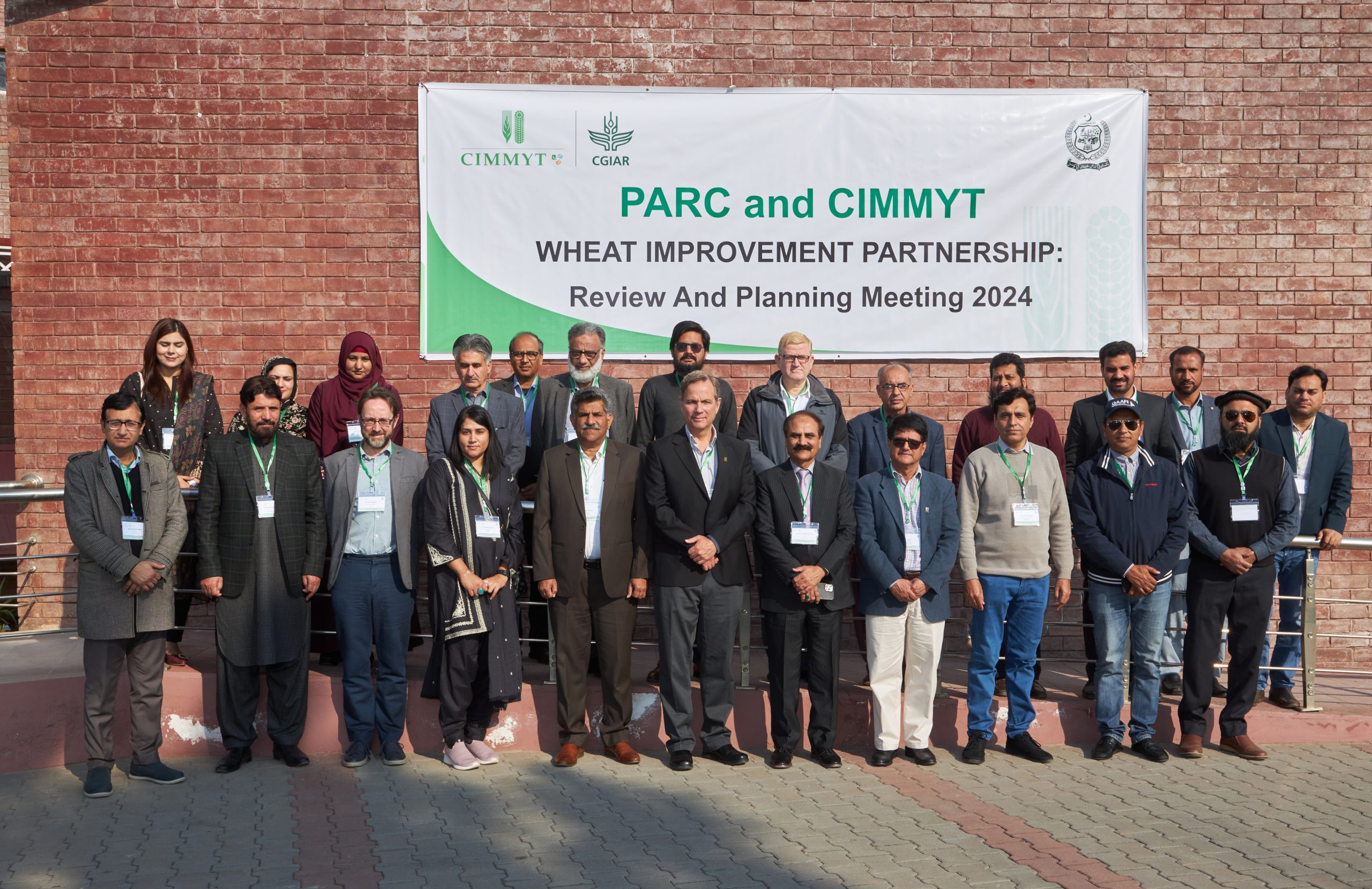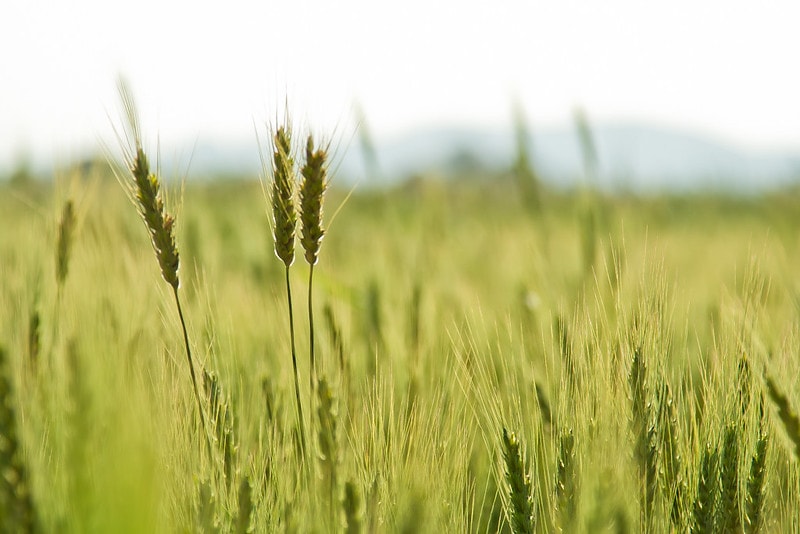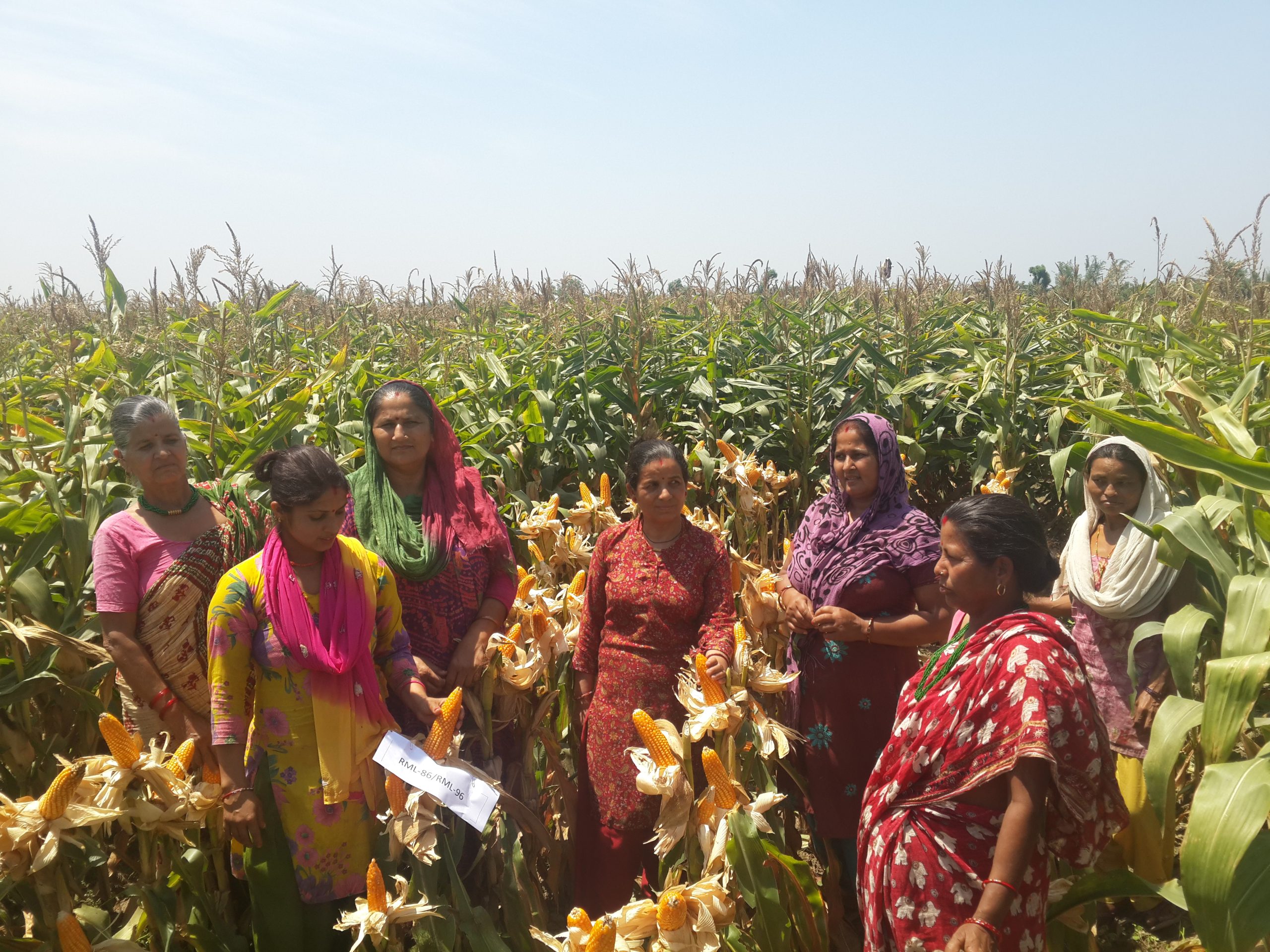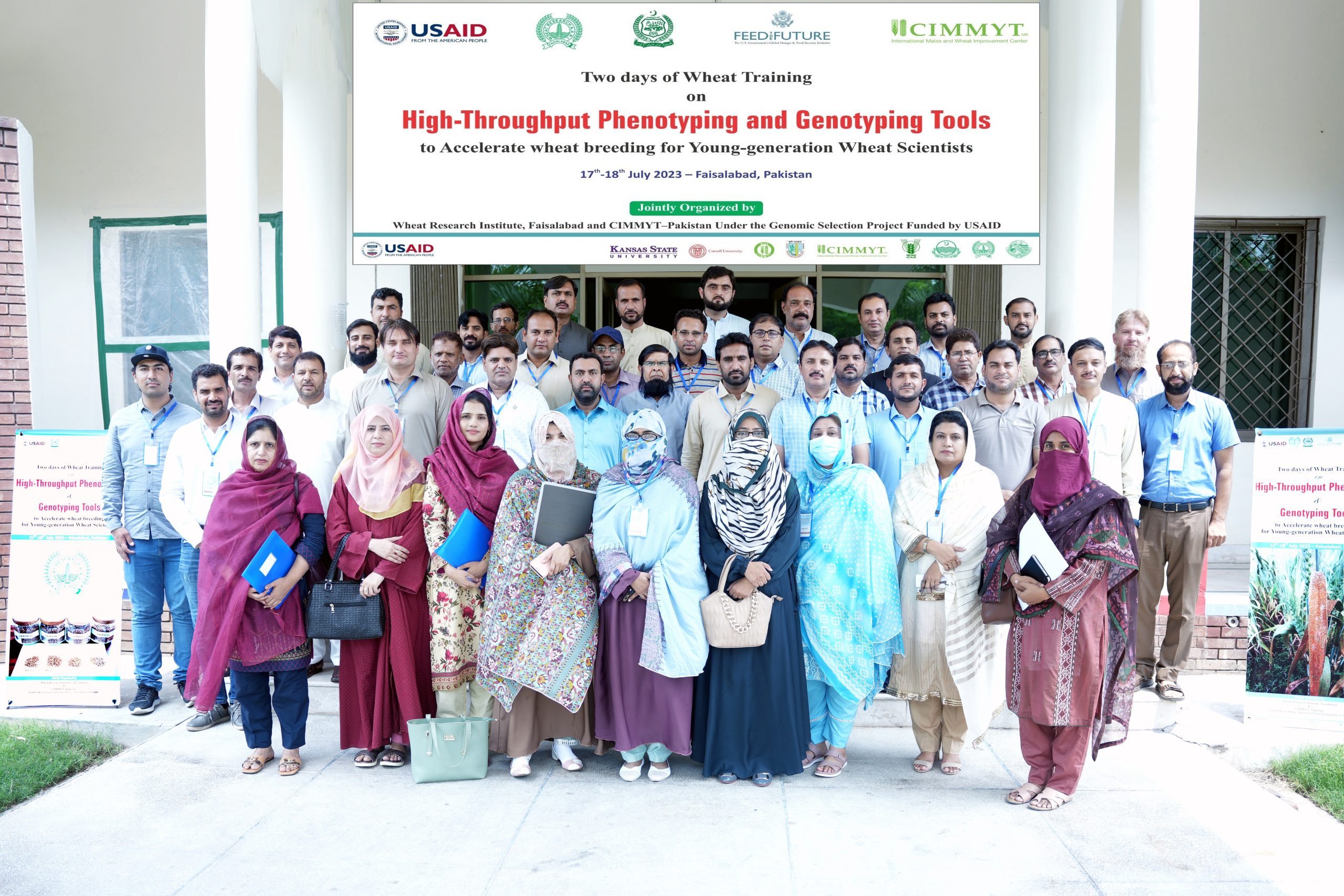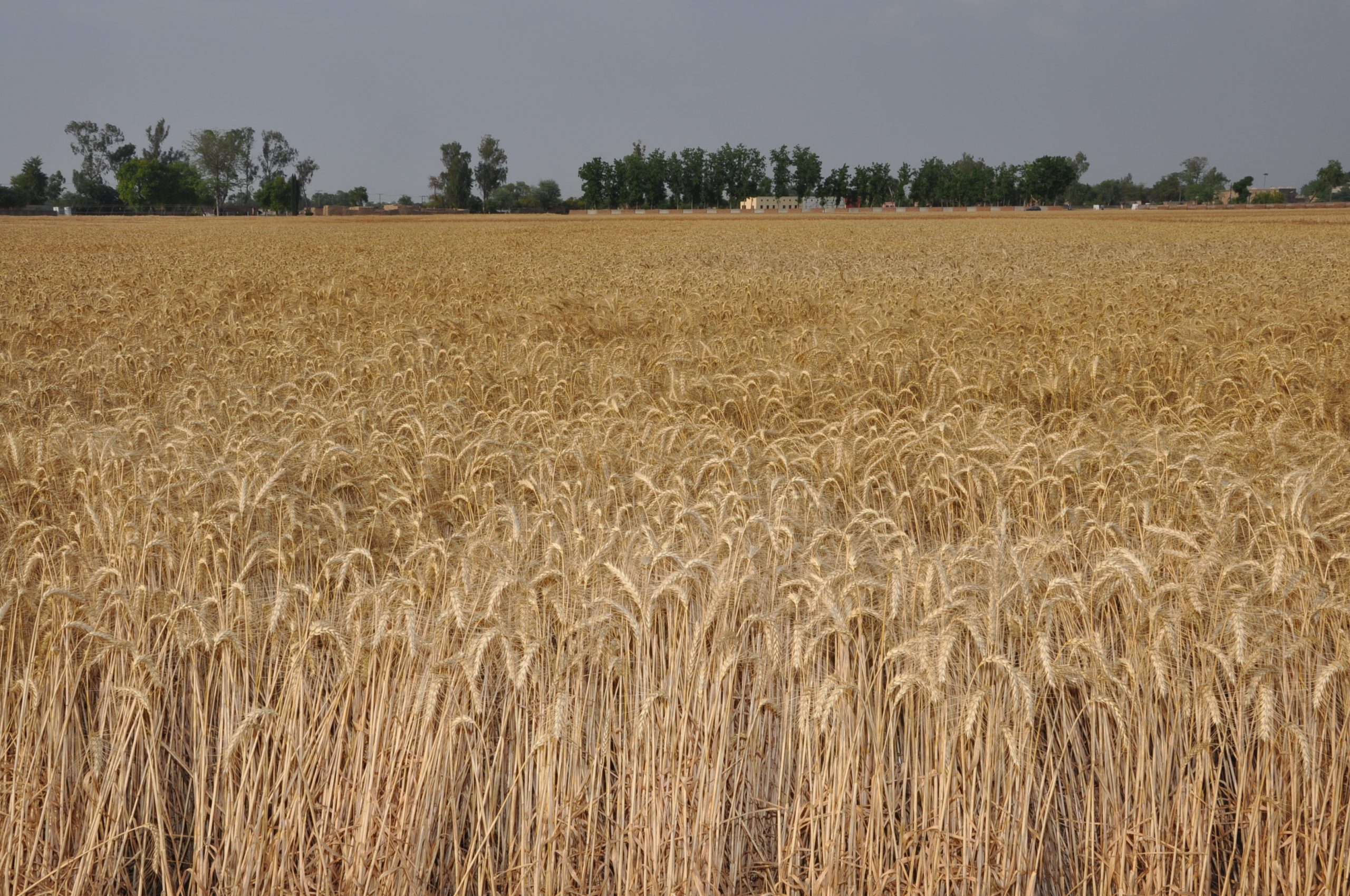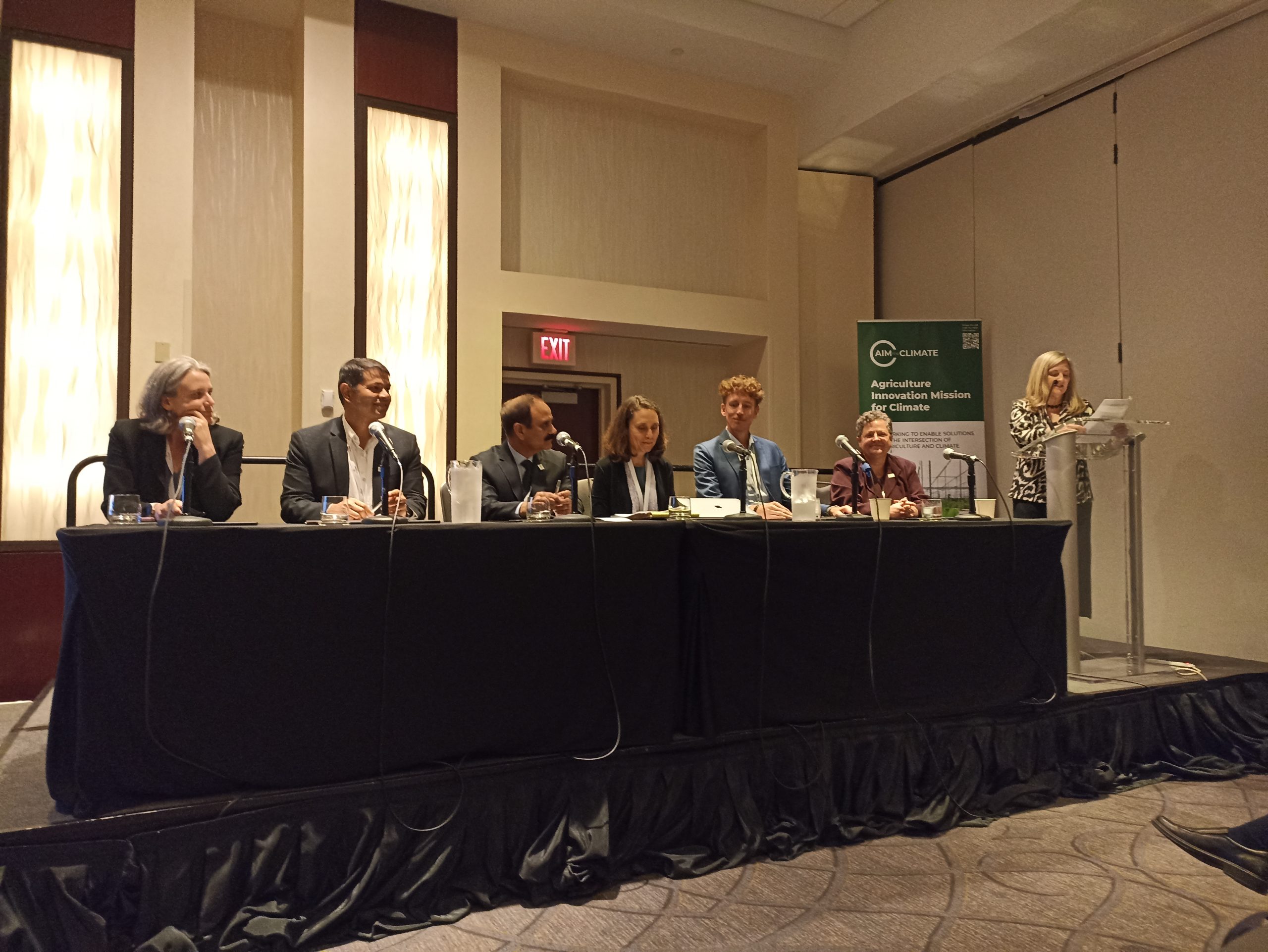Pakistan
For more information, contact CIMMYT’s Pakistan office.
Climate Change Threatens Agriculture In Khyber Pakhtunkhwa: Farmers Struggle To Cope
 Climate adaptation and mitigation
Climate adaptation and mitigation
Source: MenaFN ()
CIMMYT’s collaboration in developing drought-tolerant wheat and hybrid seeds is helping farmers in Khyber Pakhtunkhwa adapt to the growing impacts of climate change, including erratic rainfall and rising temperatures
Heat tolerant maize: a solution for climate change-induced 360◦ water deficits
 Climate adaptation and mitigation
Climate adaptation and mitigation
Heat tolerance and high yield potential are essential traits in maize to adopt climate change effects in lowland tropics.
Unlocking the power of collaboration in global wheat science
 Innovations
Innovations
CIMMYT and NARS scientists exchange knowledge on wheat improvement efforts in Pakistan, Nepal, and India.
PARC pioneered, climate resilient wheat varieties
 Capacity development
Capacity development
Source: Lead Pakistan ()
The seminar on “Sino-Pak Wheat Genomics” showcased CIMMYT and CAAS China’s collaborative efforts to enhance wheat productivity with cutting-edge genomics.
Pakistan-China wheat breeding cooperation ensures Pakistan’s food security, UN SDGs: experts
 Nutrition, health and food security
Nutrition, health and food security
Source: Xinhua ()
The Pakistan-China partnership, with CIMMYT’s support, aims to improve wheat yield and quality in Pakistan, targeting sustainable agriculture and advancement towards the Sustainable Development Goals.
Enhancing wheat breeding efficiency in South Asia through early germplasm access
 Environmental health and biodiversity
Environmental health and biodiversity
Success stories witnessed in India, Pakistan, and Nepal underscore the transformative potential of this approach, offering a beacon of hope for agricultural communities in South Asia and beyond.
Heat tolerant maize hybrids: a pursuit to strengthen food security in South Asia
 Climate adaptation and mitigation
Climate adaptation and mitigation
CIMMYT’s systematic and targeted breeding strategy in South Asia helped develop 20 high yielding and heat-stress tolerant maize hybrids. The ongoing efforts strengthens the livelihood of farm families who are highly vulnerable to climate change in the Asian tropics.
Pakistan can be self-sufficient in wheat, says agency
 Capacity development
Capacity development
Source: Dawn ()
CIMMYT efforts are moving Pakistan closer to its goal of improving food and nutrition security through wheat production, with the release of 31 wheat varieties since 2021.
Country moving forward from wheat importer to self-sufficiency
 Innovations
Innovations
The release of 31 wheat varieties brings Pakistan closer to self-suffiency in wheat production.
An Example of International Cooperation: China and CIMMYT
 Innovations
Innovations
Source: Science and Technology Daily (29 Jun 2023)
Awais Rasheed, an adjunct scientist at the International Maize and Wheat Improvement Center (CIMMYT), recently spoke to Science and Technology Daily about his pleasant experience working in China and the importance of international cooperation to address the global food security crisis.
Pakistan’s wheat yield may decline 16pc due to climate change
 Capacity development
Capacity development
Source: Dawn (25 Jun 2023)
The wheat simulation models have been widely used to study diverse cropping systems, as growing conditions and the impact of climate change on wheat vary across the globe. Simulations for South Asian countries suggested a different magnitude of climate change impacts, particularly due to warmer temperatures.
Chinese, Pakistani scientists collaborate in wheat molecular breeding
 Capacity development
Capacity development
Source: Technology Times (24 May 2023)
CIMMYT, Pakistan’s National Agriculture Research Center, and China’s Ministry of Science and Technology have collaborated in a project to increase the capacity of breeders and technical staff to develop new high-yielding and disease-resistant wheat varieties.
CIMMYT at the AIM for Climate Summit
 Climate adaptation and mitigation
Climate adaptation and mitigation
Smart smallholder fertilizer management practices to address food security and climate change.
China, Pakistan launched joint wheat breeding lab
 Capacity development
Capacity development
Source: Gwadar Pro (7 Mar 2023)
A joint lab for molecular breeding wheat research launches, with investment from China, Pakistan and CIMMYT.

